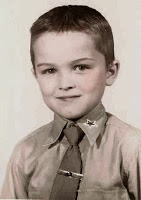The freedoms of college life and schedule demonstrated for me I would have to learn to manage my time, but I took years to figure out how my personality and preferences affected my ability to finish projects on time. At the beginning of a semester I’d study the prospectus of each class and begin figuring out how to approach papers that would be due. I’d go to the library, my favorite space in any school, where I’d search, research, and check out books. I loved digging into books and finding topics and approaches that made sense to me. Still I was writing and typing the piece right up to the last minute. Once I stayed up all night to do so but decided never to do that again. I needed my sleep! I’d just have to start earlier. Still I’d go to class re-reading the paper and changing spelling and even grammar by hand on the typed sheets. I realized Profs would like that I knew spelling and grammar better than typing. None of them criticized my last minute corrections.
One graduate school history project really captured me. I found a short 17th century German pietist theological treatise by August Hermann Franke titled “The Spiritual Affects” (of course in translation). My related paper compared it with a long book, René Descartes’ Passions of the Soul. I hoped to show Franke was not Cartesian. I was pushed for time so hired a neighbor to type the paper for me. As the deadline approached I gave her my introduction, then my first chapter that covered Franke. I was writing the conclusion while she was typing the second chapter that presented Descartes. I started wondering: maybe the old German was Cartesian. My thesis had asserted that he was not, but now that I was done writing, I thought he probably was and at the last minute concluded he actually was Cartesian. Looking again at the introduction and the conclusion, I decided I could have my typist change just a word or two in the intro, and I hurriedly rewrote the part of the conclusion. Somehow the logic of yes or no was a bit arbitrary to my analysis. But it just made more sense (at least ultimately)—a logical sense—a challenge for me since illogic seems as powerful and as helpful to me as logic. I changed the lines. The professor was amazed at the paper and agreed with my revised thesis, and I learned more about my relationship to time and preparation.
Some years later I was introduced to the Myers Briggs preferences inventory and found that I sat right on the line (zero) between thinker and feeler and on the line between judge and perceiver. Maybe that was why I had problems with those old papers. I wanted to read another book! I took another test that measured one’s preferences under stress. Aha. Under stress I become a thinker and an effective judge. That’s how I now do my work, with plenty of time to play around and a deadline to make me finish it. In the 1990s, when writing for a publishing company, I turned in all writing projects on time or even early. I suspect that is why they kept using me. The preparation was never a problem for me, but the deadline pushed me into being enough of a thinker and judge so as to complete the work.
These days I rely on SAGE Telling Your Story’s Monday 1:30 deadline to get my work done although I am still changing sentences, grammar, and spelling while riding the Zero bus on my way to the meetings.
© 29 January 2018
About the Author
Phillip Hoyle lives in Denver and spends his time writing, painting, and socializing. In general he keeps busy with groups of writers and artists. Following thirty-two years in church work and fifteen in a therapeutic massage practice, he now focuses on creating beauty. He volunteers at The Center leading the SAGE program “Telling Your Story.”









